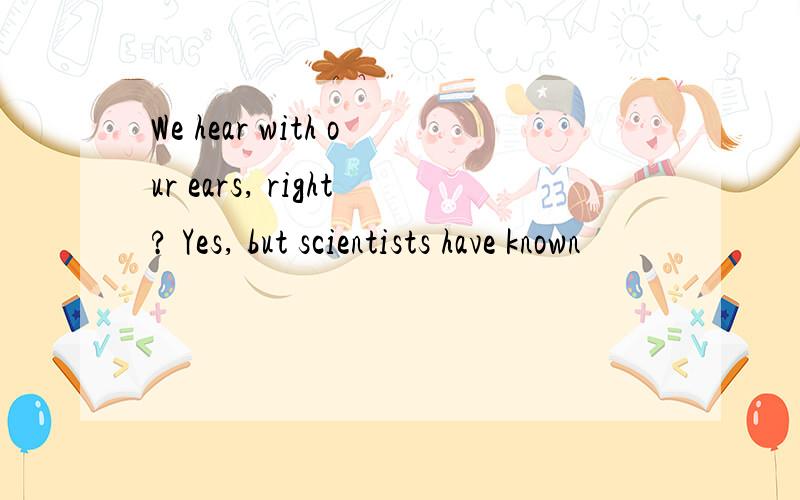We hear with our ears, right? Yes, but scientists have known
来源:学生作业帮 编辑:大师作文网作业帮 分类:英语作业 时间:2024/11/11 16:25:41
| We hear with our ears, right? Yes, but scientists have known for years that we also hear with our eyes. In a study published in 1976, researchers found that people combined both auditory cues(听力提示) and visual ones,like mouth and face movements, when they heard speech. A new study that looks at a different set of sensory cues adds to a growing body of evidence that suggests such combination is natural. In a paper, Bryan Gick and Donald Derrick report that people can hear with their skin. The researchers had volunteers listen to spoken syllables. Meanwhile, they connected the volunteers to a device that would blow a tiny puff (气流) of air onto the skin of their hands or necks. The syllables included “ba” and “pa”, which produce brief puffs from the mouth when spoken, and “da” and “ta,” which do not produce puffs. They found that when listeners heard “da” or “ta” while a puff of air was blown onto their skin, they considered the sounds as “ba” or “pa”. Dr. Gick said the findings were similar to those from the 1976 study, in which visual cues defeated auditory ones — volunteers listened to one syllable but thought it another because they were watching a video of mouth movements corresponding to the second syllable. In his study,he said,cues from sens  ory receivers on the skin defeate ory receivers on the skin defeate d the ears as well. “Our skin is doing the hearing for us,” he said. d the ears as well. “Our skin is doing the hearing for us,” he said.Dr. Gick noted that it would normally be rare that someone actually sensed a puff of air produced by another, although people might occasionally sense their own puffs. “What’s so persuasive about this particular effect,” he added. “is that people are picking up on this information that they don’t know they are using.” That supports the idea that combining different sensory cues is natural. Dr. Gick said the finding also suggested that other sensory cues might be at work in speech perception(知觉) — that, as he put it, “we are these fantastic perception machines that take in all the information available to us and combine it faultlessly.” 小题1:“Da” or “ta” were considered as “ba” or “pa” when __________.
|

小题1:B
小题2:C
小题3:A
略
We hear with our ears, right? Yes, but scientists have known
We can listen and hear with our ears.
We hear()our ears and see()oureyes.
We use our ears _____ (hear)求高人解答
We can listen with ears and walk with our f_____
2.We hear _____ our ears and see _____ our eyes .
we see with our----and hear with our----
we see with our eyes and hear with our
We hear ____ our ears and see ___our eres.(用介词填)
Yes,we have ____ on our holiday.
what has ears,but can't hear?
I have (hear) of him.We often hear Jay,but we didm't hear Hi